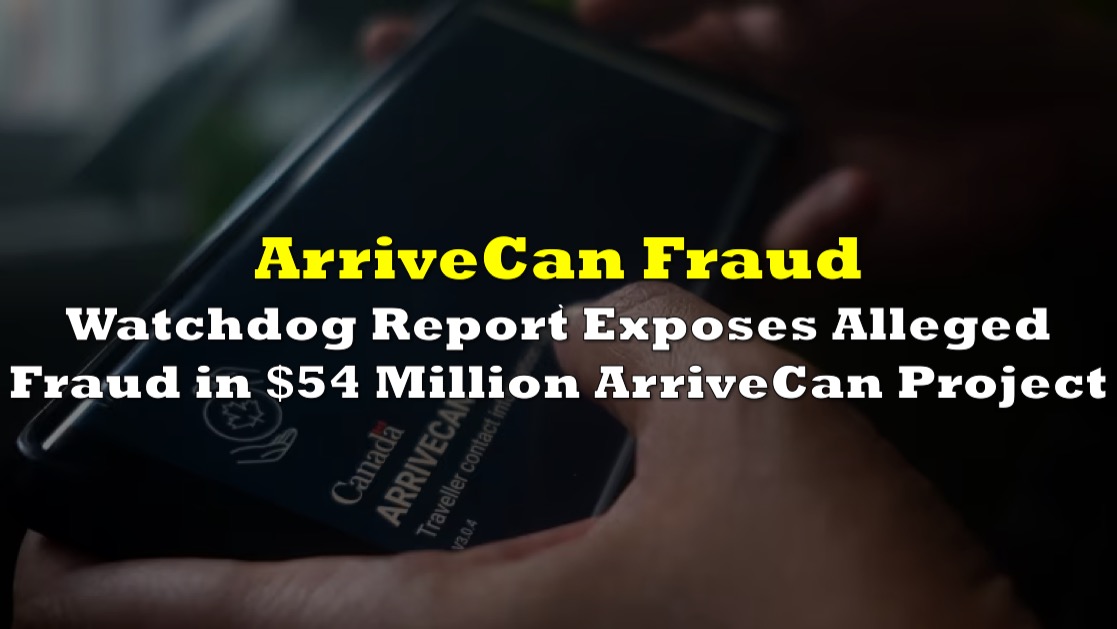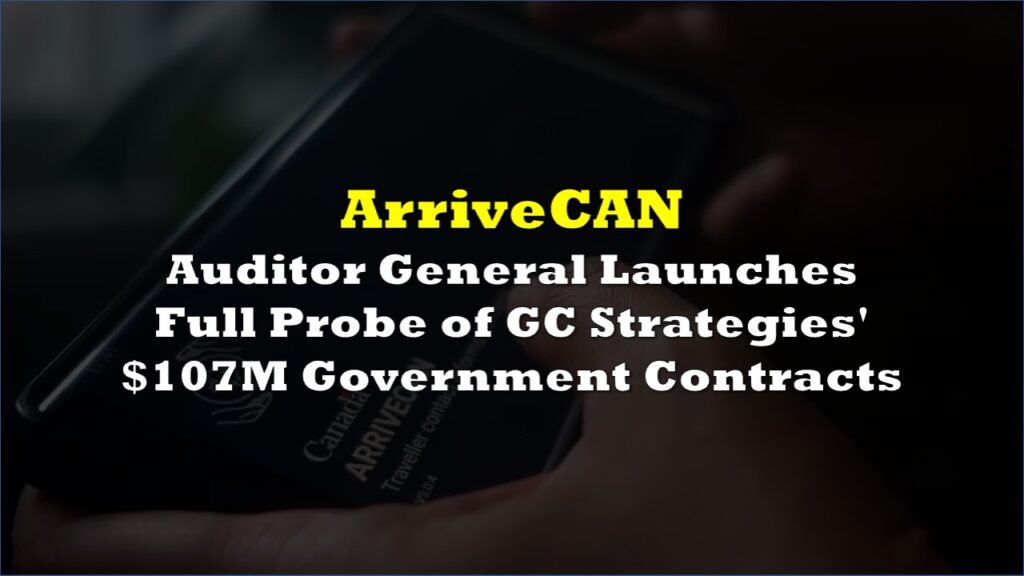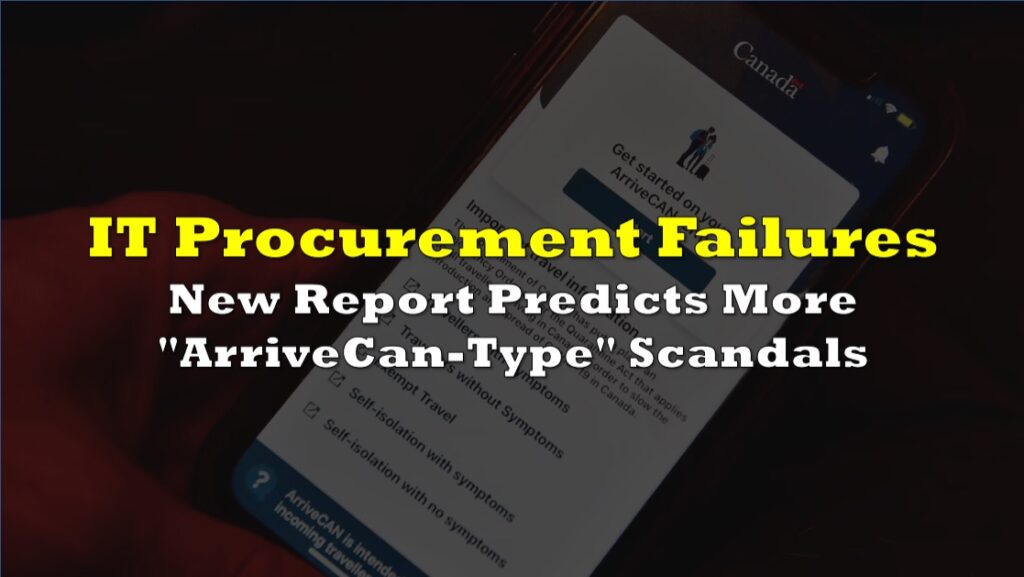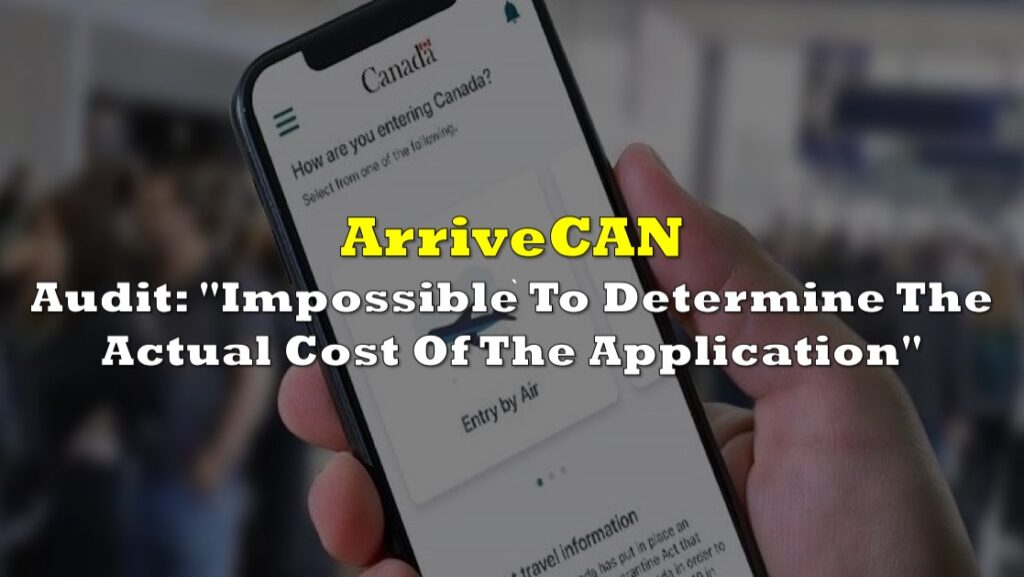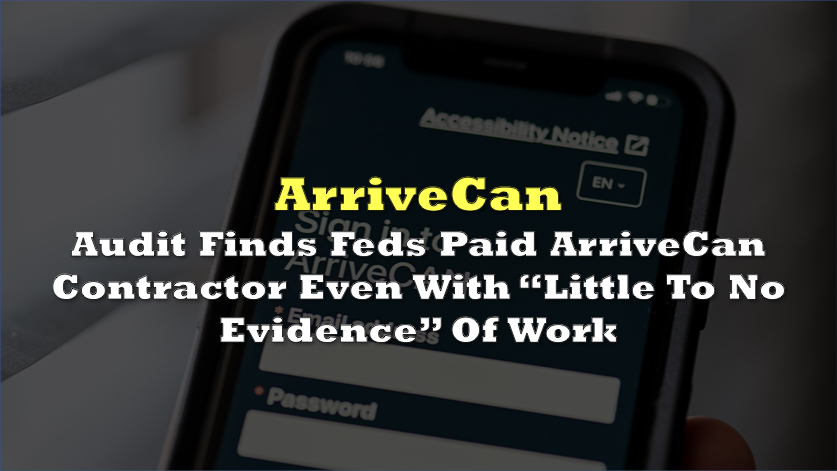In a damning report released by the Office of the Procurement Ombudsman (OPO), the $54 million ArriveCan project is under scrutiny for alleged fraud and potential criminal activities. The investigation found that a significant portion of ArriveCan subcontractors, approximately 76%, performed no actual work, raising serious concerns about the adherence to contracting rules.
Procurement Ombudsman Alexander Jeglic’s report singles out the two-person IT staffing company, GCStrategies, revealing that the company frequently failed to substantiate the qualifications of its proposed team of subcontractors. The report highlights instances where GCStrategies allegedly “copied and pasted” required work experience from the government’s criteria without providing evidence of the subcontractors’ qualifications.
The report questions the government’s criteria, stating that they were “overly restrictive and favored” GCStrategies, leading to the company winning a $25 million general IT services contract with no competing bids.
BREAKING NEWS
— Larry Brock (@LarryBrockMP) January 29, 2024
Watchdog report on $54 million ArriveCan has been released.
The report finds 76% of ArriveCan subcontractors did NO ACTUAL WORK.
ArriveCan is fraud and potentially criminal.
More to come. pic.twitter.com/6Ptt0ftzAu
This report is the first of several expected findings from various watchdogs, committees, and government departments investigating the escalating costs of building and maintaining the cross-border traveler app. Auditor-General Karen Hogan is set to release her report on February 12, providing a more comprehensive overview of contracting issues related to ArriveCan.
The investigation by the procurement watchdog reviewed 41 ArriveCan-related procurements, revealing that in the majority of cases, winning bidders did not provide the proposed subcontractors to perform the required tasks. The report expresses concerns about the lack of documentation explaining why proposed resources were not made available.
The Ombudsman also criticized the government’s public disclosure policies, noting that 41% of ArriveCan-related contracts were not fully disclosed online as required by government policy, threatening fairness, openness, and transparency in government procurement.
In response to the report, the three departments connected to ArriveCan contracts—Canada Border Services Agency, Public Safety and Procurement Canada, and Shared Services Canada—accepted the policy recommendations for improvements and outlined planned changes. The CBSA mentioned strengthening processes and controls to reduce the risk of fraud.
The report is a response to a November 14, 2022 request by the Commons committee on government operations, which has been conducting extensive hearings into issues related to ArriveCan and procurement. The committee expanded its hearings last year to include allegations of contracting misconduct raised by Montreal software company Botler, who worked with some of the same public servants and contractors involved in ArriveCan.
Botler’s co-founders, Ritika Dutt and Amir Morv, expressed satisfaction with the procurement watchdog’s findings, stating that their aim was to draw attention to issues with current procurement practices. The CBSA, in response to allegations of contracting misconduct raised by Botler, has launched an internal investigation and referred the allegations to the RCMP.
GCStrategies, which received $11 million related to ArriveCan and over $59 million in federal contract work since 2017, has faced allegations of submitting inflated work experience records to the government. Despite previous admissions of submitting inflated records, GCStrategies did not respond to requests for comments on the recent Ombudsman’s report.
One notable finding in the report is that the federal government awarded GCStrategies a $13.9 million contract without competition in April 2020, the same month ArriveCan was launched. The report reveals that GCStrategies did not meet the Document Safeguarding Capability security requirement when awarded the contract.
Public Safety and Procurement Canada claimed that the CBSA advised them a year later that the document safeguarding requirement did not apply. However, the report questions why the contract was awarded to a supplier that did not meet the security requirement in effect at the time of the award.
Information for this story was found via The Globe And Mail and the sources mentioned. The author has no securities or affiliations related to the organizations discussed. Not a recommendation to buy or sell. Always do additional research and consult a professional before purchasing a security. The author holds no licenses.

